Conference
Agenda
CONFERENCE DAY ONE - 29 OCTOBER 2025, WEDNESDAY
Level 4 Orchid Ballroom 4305
 Gan Siow Huang, Minister of State - Ministry of Foreign Affairs & Ministry of Trade and Industry, Singapore
Gan Siow Huang, Minister of State - Ministry of Foreign Affairs & Ministry of Trade and Industry, SingaporeThis session will explore the challenges of transitioning away from fossil fuels, particularly for developing countries. It will discuss how a complete replacement of fossil fuels with cleaner sources might be unrealistic and economically infeasible. Instead, focusing on a strategy of “energy addition,” where the growth in energy demand is primarily met by alternative sources, while acknowledging the continued role of conventional fuels.
- The challenges of the current energy transition plan
- The need for a new approach that prioritises emissions reduction, affordability, and security
- The role of oil and gas in meeting Asia’s growing energy needs and maintaining energy security and affordability
- A vision for a secure and sustainable downstream sector in Asia
The downstream industry is undergoing major shifts, presenting significant opportunities for purposeful growth. This keynote explores how leaders build resilience and competitiveness through strategic expansion. It will discuss what drives this growth – changing market needs, sustainability goals, and optimising operations and how it strengthens a company’s reach and broadens its offerings.
Level 4 Orchid Ballroom 4305
 Andre Khor, Group Chief Financial Officer & Deputy Chief Executive Officer - PT Chandra Asri Pacific Tbk & Aster Chemicals and Energy Pte. Ltd., Singapore
Andre Khor, Group Chief Financial Officer & Deputy Chief Executive Officer - PT Chandra Asri Pacific Tbk & Aster Chemicals and Energy Pte. Ltd., SingaporeOPENING PLENARY ROADMAP TO A SUSTAINABLE DOWNSTREAM INDUSRTY
The Asia Zero Emission Community (AZEC) framework is rapidly shaping the region’s energy landscape, setting ambitious targets for clean energy adoption and decarbonisation. This presentation will delve into the critical role of the downstream refinery and petrochemical industry in achieving these zero-emission goals.
Level 4 Orchid Ballroom 4305
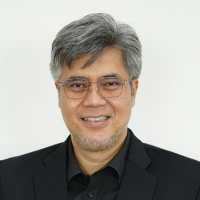 Dr. Nuki Agya Utama, Director for Energy Policy and Head of Asia Zero Emission Center - Economic Research Institute for ASEAN and East Asia (ERIA), Indonesia
Dr. Nuki Agya Utama, Director for Energy Policy and Head of Asia Zero Emission Center - Economic Research Institute for ASEAN and East Asia (ERIA), Indonesia We will explore how the AZEC roadmap aligns with the industry’s need for sustainable transformation, focusing on:
- The strategic implications of clean energy technologies for downstream operations
- Practical pathways for decarbonisation within refining and petrochemical processes
- The integration of innovative solutions to meet zero-emission targets
- The role of regional collaboration and policy frameworks in driving sustainable change
- Downstream Project of the Year
- Innovations in Oil & Gas Digital Technology
- Sustainable Plant of the Year
- Sustainable Technology of the Year
- Young Engineer of the Year
- Female Engineer of the Year
- Leader of the Year
Awards Presented by Guest of Honour
Level 4 Orchid Ballroom 4305
 Gan Siow Huang, Minister of State - Ministry of Foreign Affairs & Ministry of Trade and Industry, Singapore
Gan Siow Huang, Minister of State - Ministry of Foreign Affairs & Ministry of Trade and Industry, SingaporePLENARY 1 THE EVOLVING LANDSCAPE – NAVIGATING OPPORTUNITIES AND RISKS
Level 4 Orchid Ballroom 4305
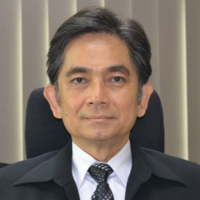 Dr. Weerawat Chantanakome, Honorary Counsellor - Ministry of Energy Thailand
Dr. Weerawat Chantanakome, Honorary Counsellor - Ministry of Energy Thailand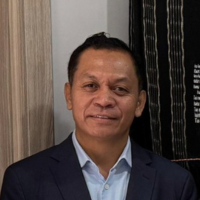 Gualdino do Carmo da Silva, President - Autoridade Nacional do Petróleo (ANP), Timor-Leste
Gualdino do Carmo da Silva, President - Autoridade Nacional do Petróleo (ANP), Timor-Leste Claire Perry O'Neill, Non-Executive and Independent Director - SGX Group, Singapore
Claire Perry O'Neill, Non-Executive and Independent Director - SGX Group, Singapore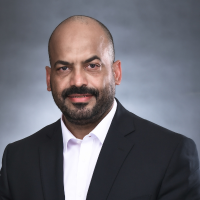 Hassan Alyami, Vice President, Ras Tanura Refinery - Aramco, Saudi Arabia
Hassan Alyami, Vice President, Ras Tanura Refinery - Aramco, Saudi Arabia  Allen Tom Abraham, Head of Industrial Decarbonisation - BloombergNEF, Singapore
Allen Tom Abraham, Head of Industrial Decarbonisation - BloombergNEF, Singapore - Market outlook – promising trends and potential concerns in Asian refining and petrochemicals currently
- Growth opportunities in the downstream industry
- Optimising legacy operations, whilst maintaining a commercial and sustainable lens, to meet ever-growing energy demand
- Remaining competitive through small, evolutionary steps to maximise energy efficiency and minimise overall cost of production in the next 12-18 months
- How do strategies different across various countries
This keynote presentation will explore how AI can unlock significant competitive advantages in the evolving energy landscape. It will examine the significant opportunities AI presents for optimising operations and processes, improving efficiency and driving innovation. It will also address associated risks and challenges, including cybersecurity, data privacy, and workforce implications.
Level 4 Orchid Ballroom 4305
This session will provide a critical update on the policies and initiatives within Malaysia, with a focus on efforts from the state of Sarawak, aimed at driving the downstream refinery and petrochemical industry towards net-zero emissions.
Level 4 Orchid Ballroom 4305
 YB Datuk Dr Haji Hazland bin Abang Hj Hipni, Deputy Minister - Ministry of Energy and Environmental Sustainability Sarawak, Malaysia
YB Datuk Dr Haji Hazland bin Abang Hj Hipni, Deputy Minister - Ministry of Energy and Environmental Sustainability Sarawak, MalaysiaThis session presents an integrated, multidisciplinary framework to help refining and petrochemical assets improve profitability in a low-margin environment without significant capital expenditure. It outlines a holistic, sprint-based approach to identify, analyse, and implement profitability improvements across the value chain, focusing on process optimisation, asset constraint mitigation, and molecular and energy management. The methodology enables rapid implementation of “Quick Win Sprints” for tangible gains and ensures sustainable reliability through programs like corrosion prediction models. The session emphasises that margin improvement in the current economic landscape requires a disciplined methodology and expert facilitation to unlock latent value within existing asset.
Level 4 Orchid Ballroom 4305
 John Koo, Business Development Director, Senior Strategic Business Planning Account Manager, APAC - Becht, Singapore
John Koo, Business Development Director, Senior Strategic Business Planning Account Manager, APAC - Becht, Singapore Level 4 Orchid Ballroom 4305
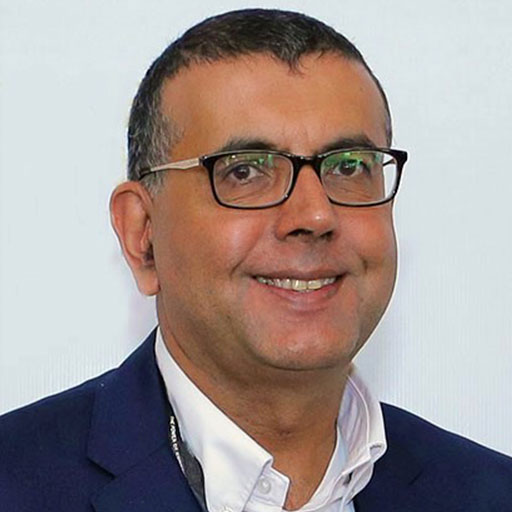 Bob Gill, General Manager, Southeast Asia - ARC Advisory Group, Singapore
Bob Gill, General Manager, Southeast Asia - ARC Advisory Group, Singapore Level 4 Orchid Ballroom 4303
 Karen Andries, Vice President - Country Delegate Asia Pacific, TotalEnergies, Singapore
Karen Andries, Vice President - Country Delegate Asia Pacific, TotalEnergies, Singapore Dewi Mersitarini, Group Leader CCS/ CCUS - PT Pertamina (Persero), Indonesia
Dewi Mersitarini, Group Leader CCS/ CCUS - PT Pertamina (Persero), Indonesia 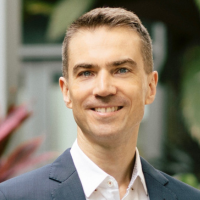 Philippe Rose, Senior Analyst, Energy Technology and Innovation - International Energy Agency Regional Cooperation Centre (IEA), Singapore
Philippe Rose, Senior Analyst, Energy Technology and Innovation - International Energy Agency Regional Cooperation Centre (IEA), Singapore - Economic realities of CCUS – high capital costs, the role of government subsidies and incentives, and innovative financing mechanisms to drive investment
- Innovative carbon utilisation pathways, such as carbon recycling and the development of diverse carbon-based products
- Critical need for regional and national policies, regulations, and standards for carbon emissions
- Feasibility and implications of cross-border carbon management
- Addressing storage capacity and complex export logistics
- The role of technology innovation, research and development, and capacity building in advancing CCUS deployment across the region
Attendees can expect to hear 20-minute technical presentations
- Energy-Efficient Equipment and Technologies
- Process Optimisation and Integration
- Smart Technologies and Automation
- Predictive Maintenance
- Real-Time Monitoring and Control
- Maximising Plant Productivity
- Renewable Energy Integration
- Electrification of Processes
- Materials Transition
Level 4 Orchid Ballroom 4305
 Filippo Trivella, Managing Director - Alpha Process Control, Italy
Filippo Trivella, Managing Director - Alpha Process Control, Italy Level 4 Orchid Ballroom 4302
 Chiu Gha Uai, Senior Manager, Technical Services (Asia) - Aspen Aerogels Inc., Malaysia
Chiu Gha Uai, Senior Manager, Technical Services (Asia) - Aspen Aerogels Inc., MalaysiaLevel 4 Orchid Ballroom 4305
 Mayuresh Mokal, Digital Solutions Client Engagement – APAC - Ingenero, USA
Mayuresh Mokal, Digital Solutions Client Engagement – APAC - Ingenero, USALevel 4 Orchid Ballroom 4302
 Giuseppe Della Sala, Senior Technical Advisor - Baker Hughes, Italy
Giuseppe Della Sala, Senior Technical Advisor - Baker Hughes, ItalyLevel 4 Orchid Ballroom 4305
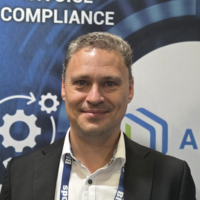 Dr. Alexander Eberlein, Director Business Development APAC - NHD GmbH, Germany
Dr. Alexander Eberlein, Director Business Development APAC - NHD GmbH, GermanyLevel 4 Orchid Ballroom 4302
 Jeff Choong, Head of Regional Sales (SEA) - Piller Blowers & Compressors GmbH, Singapore
Jeff Choong, Head of Regional Sales (SEA) - Piller Blowers & Compressors GmbH, SingaporeThe Low Carbon Technology Translational Testbed (LCT3) is Singapore’s upcoming platform to accelerate low-carbon technology adoption in the energy and chemicals sector. This presentation will outline the features of LCT3 and how the initiative will support technology translation in Singapore.
Level 4 Orchid Ballroom 4303
 Koh Chen Ning, Division Director, Process Engineering and Safety; Programme Director, Low Carbon Technology Translational Testbed (LCT3) - Institute of Sustainability for Chemicals, Energy and Environment (ISCE2), A*STAR, Singapore
Koh Chen Ning, Division Director, Process Engineering and Safety; Programme Director, Low Carbon Technology Translational Testbed (LCT3) - Institute of Sustainability for Chemicals, Energy and Environment (ISCE2), A*STAR, SingaporeAttendees can expect to hear 20-minute technical presentations on
- Artificial Intelligence (AI)
- Digital Twins
- Process Automation
- Internet of Things (IOT)
- Robotics
- Cybersecurity
- Data Governance
- Digital Transformation
- Digital Enablement and Training
Attendees can expect to hear 20-minute technical presentations on
- Energy-Efficient Equipment and Technologies
- Process Optimisation and Integration
- Smart Technologies and Automation
- Predictive Maintenance
- Real-Time Monitoring and Control
- Maximising Plant Productivity
- Renewable Energy Integration
- Electrification of Processes
- Materials Transition
Level 4 Orchid Ballroom 4305
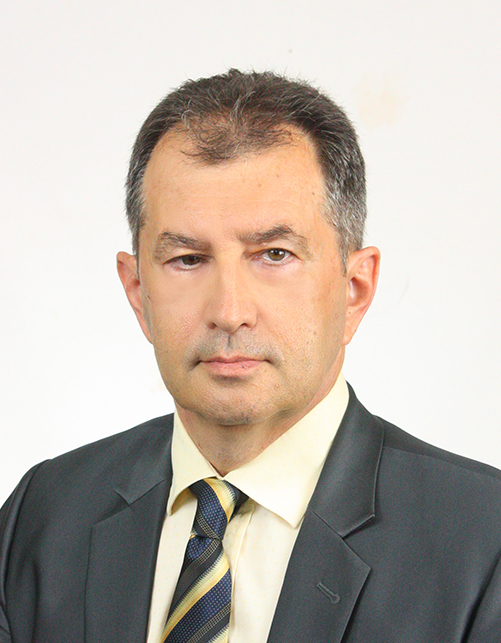 Sam Matic, P.Eng. , Founder & Principal Consultant - aprocesr Limited, Hong Kong
Sam Matic, P.Eng. , Founder & Principal Consultant - aprocesr Limited, Hong KongLevel 4 Orchid Ballroom 4302
 Katie Marshall, Senior Director of Technology - Refined Technologies Inc, USA
Katie Marshall, Senior Director of Technology - Refined Technologies Inc, USALevel 4 Orchid Ballroom 4303
 Christopher Evans, Principal Consultant – Advisory - Xodus, APAC
Christopher Evans, Principal Consultant – Advisory - Xodus, APACLevel 4 Orchid Ballroom 4305
 Ben Hewitt, Product Manager – OptiSite – Asset Performance Management & Digital Twin - SLB, United Kingdom
Ben Hewitt, Product Manager – OptiSite – Asset Performance Management & Digital Twin - SLB, United KingdomLevel 4 Orchid Ballroom 4302
 Bosco Chiramel, Senior Engineer, Operations - Hindustan Petroleum Corporation Limited, India
Bosco Chiramel, Senior Engineer, Operations - Hindustan Petroleum Corporation Limited, India Level 4 Orchid Ballroom 4303
 Dr. Cai Li Song, Executive Researcher - Petroliam Nasional Berhad (PETRONAS), Malaysia
Dr. Cai Li Song, Executive Researcher - Petroliam Nasional Berhad (PETRONAS), MalaysiaLevel 4 Orchid Ballroom 4305
 Hackfinsept Tubigan, Package Equipment Engineer & Mechanical Data Analyst - Fluor Daniel, Inc. - Philippines
Hackfinsept Tubigan, Package Equipment Engineer & Mechanical Data Analyst - Fluor Daniel, Inc. - PhilippinesLevel 4 Orchid Ballroom 4302
 Bosco Chiramel, Senior Engineer, Operations - Hindustan Petroleum Corporation Limited, India
Bosco Chiramel, Senior Engineer, Operations - Hindustan Petroleum Corporation Limited, India  Wasif Fauz, Operations Engineer - Hindustan Petroleum Corporation Limited, India
Wasif Fauz, Operations Engineer - Hindustan Petroleum Corporation Limited, IndiaLevel 4 Orchid Ballroom 4303
 Kanika Tayal, Director, Global Marketing Technology Strategy - GE Vernova, India
Kanika Tayal, Director, Global Marketing Technology Strategy - GE Vernova, India Yusuke Takahashi, Manager, Business Development & Administration Group, Ammonia Gas Turbine Development Department, Resource, Energy and Environment Business Area - IHI, Japan
Yusuke Takahashi, Manager, Business Development & Administration Group, Ammonia Gas Turbine Development Department, Resource, Energy and Environment Business Area - IHI, JapanLevel 4 Orchid Ballroom 4305
 Bob Gill, General Manager, Southeast Asia - ARC Advisory Group, Singapore
Bob Gill, General Manager, Southeast Asia - ARC Advisory Group, Singapore This keynote presentation will delve into navigating the evolving energy landscape while prioritising sustainable growth, operational excellence and efficiency. The session will discuss key initiatives, including such as clean fuels production, enhancing refining capabilities, increasing energy efficiency of the production process and strengthening energy security. The presentation will also address challenges and opportunities in the downstream sector, including market dynamics, technological advancements, and the imperative of environmental sustainability.
Level 4 Orchid Ballroom 4305
Moving beyond initial trials, this session will focus on the critical aspects of scaling applied AI initiatives to achieve widespread impact across refinery and petrochemical operations. Learn from real-world experiences how to effectively transition AI projects from pilot phases to full-scale production, ensuring robust performance, seamless integration, and measurable returns on investment. This keynote will provide a roadmap for organisations seeking to embed AI as a core driver of efficiency and innovation, with a focus on maximising production and reducing environmental impact.
Level 4 Orchid Ballroom 4305
This keynote presentation will delve into navigating the evolving energy landscape while prioritising sustainable growth, operational excellence and efficiency. The session will discuss key initiatives, including such as clean fuels production, enhancing refining capabilities, increasing energy efficiency of the production process and strengthening energy security. The presentation will also address challenges and opportunities in the downstream sector, including market dynamics, technological advancements, and the imperative of environmental sustainability.
 John Koo, Business Development Director, Senior Strategic Business Planning Account Manager, APAC - Becht, Singapore
John Koo, Business Development Director, Senior Strategic Business Planning Account Manager, APAC - Becht, Singapore PLENARY 2 DRIVING EFFICIENCY AND EXCELLENCE
Level 4 Orchid Ballroom 4305
 Gualdino do Carmo da Silva, President - Autoridade Nacional do Petróleo (ANP), Timor-Leste
Gualdino do Carmo da Silva, President - Autoridade Nacional do Petróleo (ANP), Timor-LesteNew and existing plants use new automation to solve longstanding operational issues across multiple domains. For existing plants we speak of digital transformation. for new plants we speak of “born digital”. In both cases ‘digital’ simply means automation which has industrial software at its core including industrial artificial intelligence (AI).
Level 4 Orchid Ballroom 4305
 Jonas Berge, Senior Director of Applied Technology - Emerson, Singapore
Jonas Berge, Senior Director of Applied Technology - Emerson, SingaporeLevel 4 Orchid Ballroom 4305
 Mai Tuan Dat, Vice President & CTO - Binh Son Refining and Petrochemical JSC, Vietnam
Mai Tuan Dat, Vice President & CTO - Binh Son Refining and Petrochemical JSC, Vietnam 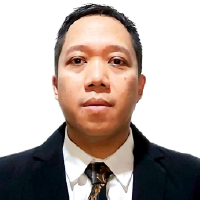 Dwi Minarto, Vice President, IT - PT Kilang Pertamina Internasional, Indonesia
Dwi Minarto, Vice President, IT - PT Kilang Pertamina Internasional, Indonesia Jonas Berge, Senior Director of Applied Technology - Emerson, Singapore
Jonas Berge, Senior Director of Applied Technology - Emerson, Singapore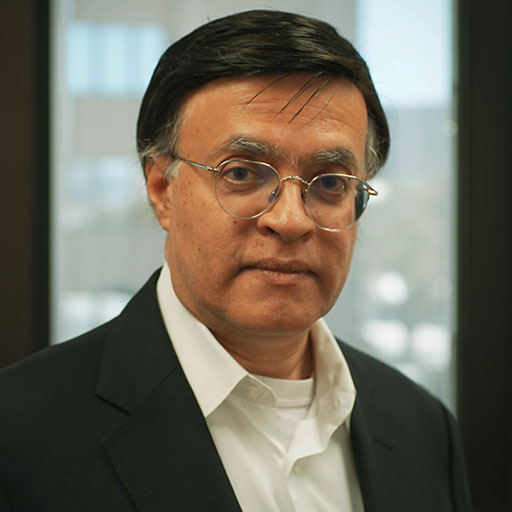 Dr. Pratap Nair, Founder, President & CEO - Ingenero, USA
Dr. Pratap Nair, Founder, President & CEO - Ingenero, USA Matt Flanagan, Partner - Pyxis, Switzerland
Matt Flanagan, Partner - Pyxis, Switzerland- Enhancing operational efficiency, improving safety and environmental performance
- Optimising production processes, improving asset reliability, and enhancing decision-making through AI and Machine Learning algorithms
- Practical applications of AI in refineries and petrochemical plants, including digital twin technology and Industry 4.0 principles
- Ensuring compatibility with existing technology, infrastructure and processes
- Importance of human-in-the-loop AI
- Navigating implementation and integration of new solutions through change management, reskilling and ensuring a smooth transition for the workforce
- Building a robust security framework and implementing security measures to protect systems from cyberattacks
- Implementing data security and privacy measures to protect sensitive data from unauthorised access, use, disclosure, disruption, modification, or destruction
Level 4 Orchid Ballroom 4305
 Jonas Berge, Senior Director of Applied Technology - Emerson, Singapore
Jonas Berge, Senior Director of Applied Technology - Emerson, Singapore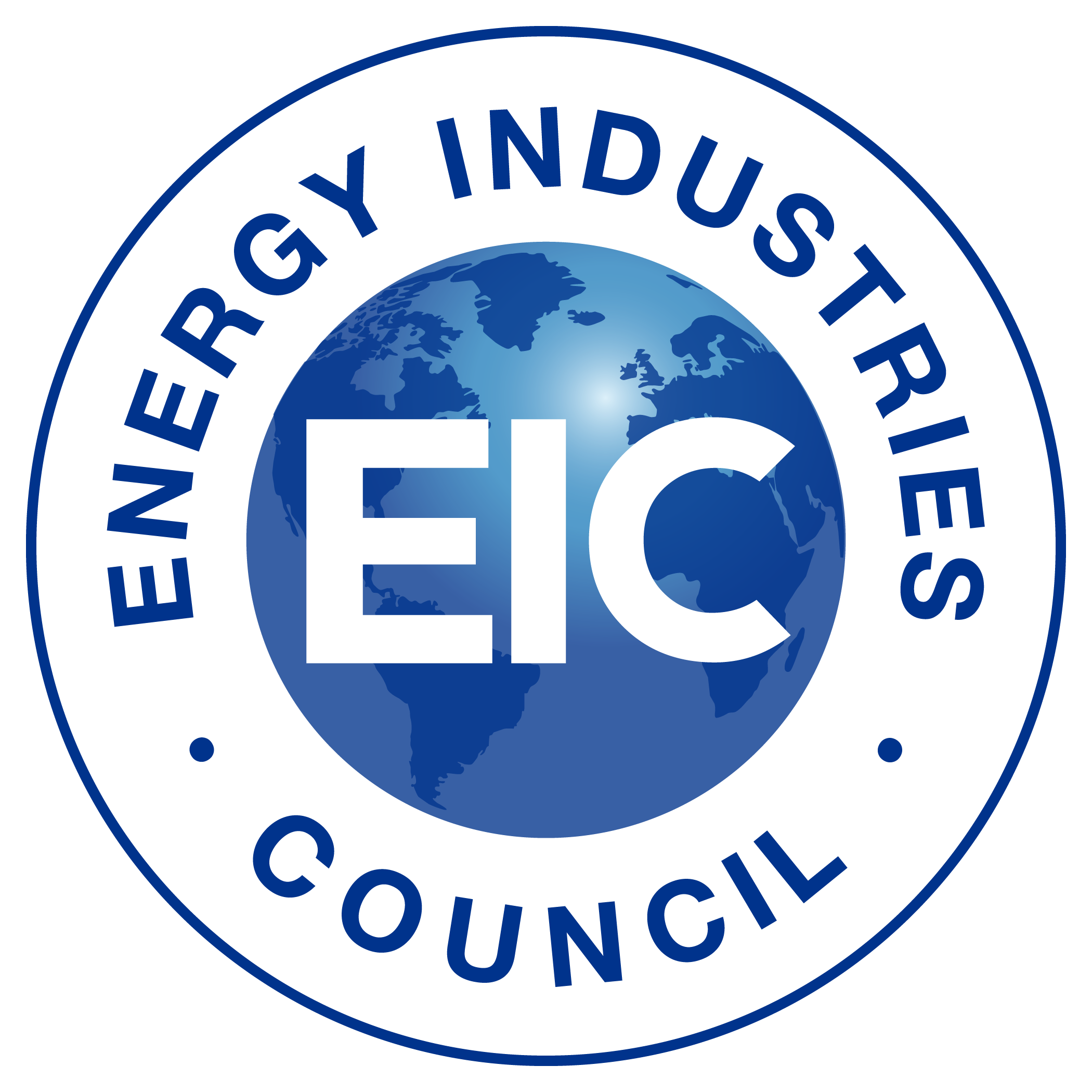

Co-hosted with EIC (Energy Industries Council) and Emerson, this is your chance to unwind, connect, and exchange ideas with senior industry professionals across the downstream, refining, and petrochemicals sectors.
Don’t miss this opportunity to build meaningful connections in a relaxed, engaging setting.
Level 4 Peony Ballroom (Exhibition Hall)



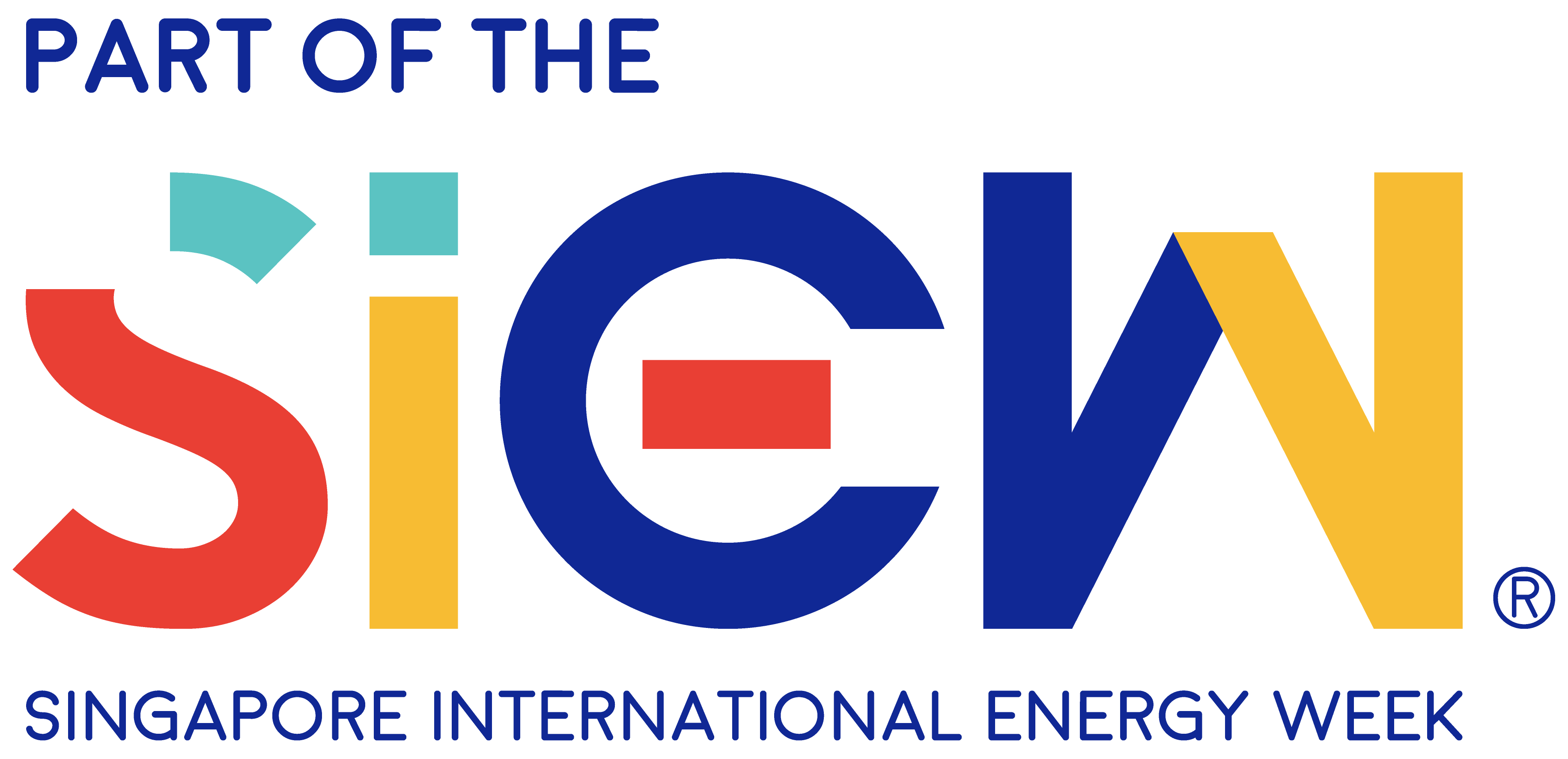



 Richard Ireland
Richard Ireland 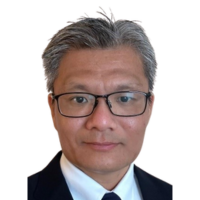 Tim Rockell
Tim Rockell